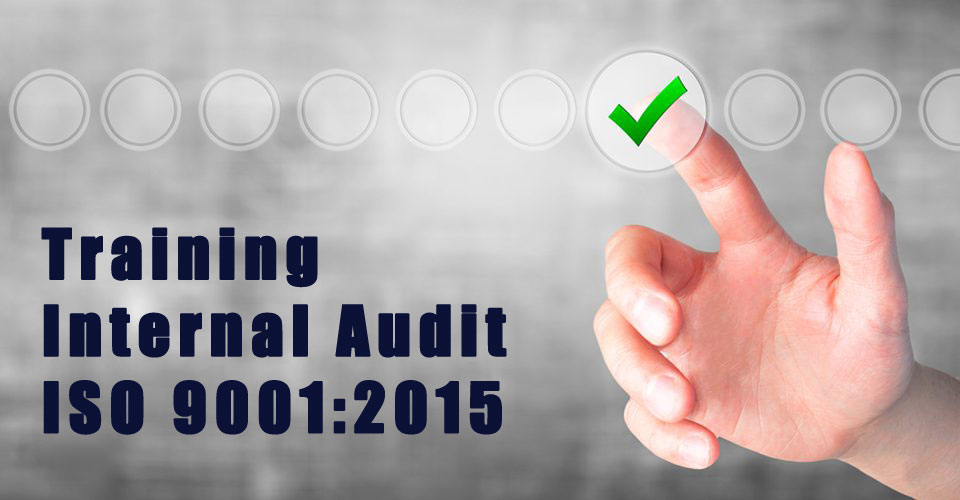ISO 9001 is the world’s most recognized Quality Management Systems (QMS) standard. Internal auditors play a critical role in an organization striving for quality management excellence. ISO 9001 internal auditor training equips individuals with the necessary skills and knowledge to conduct effective internal audits of a company’s quality management system. Let’s explore the purpose of this training along with the key elements and benefits it offers.
What Are ISO 9001 and Internal Audits?
ISO 9001 is an internationally recognized standard for quality management systems. It outlines the requirements for establishing, implementing, and continuously improving a QMS. Internal audits are systematic assessments conducted within an organization to determine whether the QMS conforms to the planned arrangements and effectively implements the requirements of ISO 9001. These audits help to identify areas for improvement and ensure the effectiveness of the QMS.
Who Should Attend ISO 9001 Internal Auditor Training?
The training program is ideal for the individual who conducts internal audits of their organization’s QMS. It caters to a broad range of professionals, including-
- Quality control personnel
- Process owners
- Department managers
- Individuals seeking a career in quality management
Benefits of ISO 9001 Internal Auditor Training
Participation in ISO 9001 internal auditor training helps individuals gain the necessary skills and knowledge to conduct effective internal audits. These benefits translate to the organization as a whole:
- Enhanced QMS effectiveness: Trained internal auditors can systematically evaluate the QMS, pinpoint areas for improvement, and contribute to its overall effectiveness.
- Improved compliance: A thorough understanding of ISO 9001 requirements ensures audits identify and address any potential non-conformities.
- Proactive problem identification: Internal audits enable proactive identification of potential issues within the QMS before they escalate into bigger problems.
- Continuous improvement: Internal audits pave the way for continuous improvement by identifying areas for improvement within the organization’s QMS.
- Cost savings: Early detection and correction of issues within the QMS can prevent costly problems down the line.
What To Expect During The Training
ISO 9001 internal auditor training programs typically cover the following topics:
- Introduction to ISO 9001 and its key concepts
- Understanding the quality management system framework
- Internal audit principles and practices
- Planning and preparing for internal audits
- Conducting effective audit interviews and record reviews
- Identifying and reporting non-conformances
- Evaluating corrective actions
- Communication and reporting skills for auditors
- Practical exercises and mock audits
The training duration can vary depending on the provider, but it typically ranges from two to five days. Furthermore, there were two prominent auditing training programs for organizations i.e. ISO internal auditor and ISO lead auditor training. Internal auditors conduct internal audits within their own organization, focusing on specific departments or processes. On the other hand, the lead auditor leads and manages the internal audits team, overseeing the entire internal audit process.
Concluding Remark
ISO 9001 internal auditor training equips individuals with the necessary skills to conduct effective internal audits and contribute to the ongoing improvement of an organization’s QMS. organizations like INTERCERT offer comprehensive training programs affiliated with ISO, even assisting in achieving ISO certification. Hence, gain extensive training from INTERCERT a renowned accreditation organization with proven track records, to develop advanced skills and knowledge related to QMS.
A PHP Error was encountered
Severity: Notice
Message: Undefined variable: clientlist
Filename: views/blog_view.php
Line Number: 67
Backtrace:
File: /home/sysintercert/public_html/application/views/blog_view.php
Line: 67
Function: _error_handler
File: /home/sysintercert/public_html/application/controllers/Blogs.php
Line: 41
Function: view
File: /home/sysintercert/public_html/index.php
Line: 316
Function: require_once
A PHP Error was encountered
Severity: Warning
Message: Invalid argument supplied for foreach()
Filename: views/blog_view.php
Line Number: 67
Backtrace:
File: /home/sysintercert/public_html/application/views/blog_view.php
Line: 67
Function: _error_handler
File: /home/sysintercert/public_html/application/controllers/Blogs.php
Line: 41
Function: view
File: /home/sysintercert/public_html/index.php
Line: 316
Function: require_once

